
To be listed on the CAMPOSOL TODAY MAP please call +34 968 018 268.
article_detail
Spanish News Today Editors Roundup Weekly Bulletin September 1
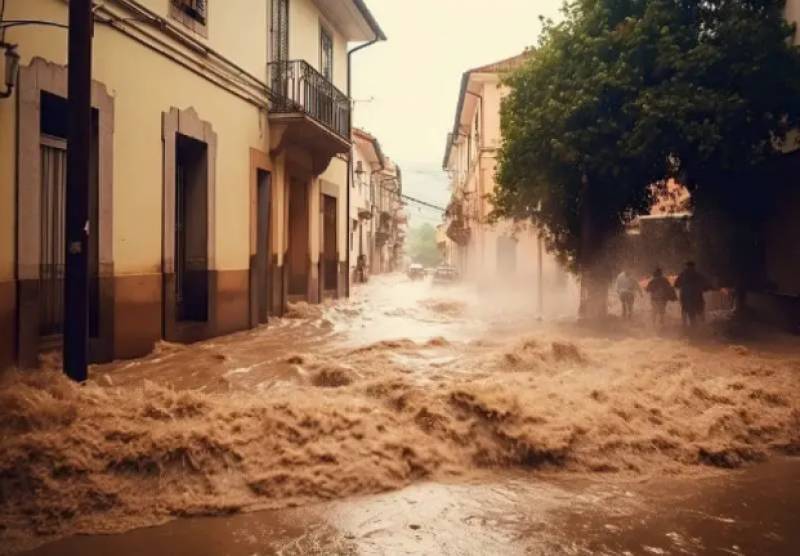
FEATURED ARTICLES: "Spain braces itself for the worst storm of the year" and "UK air traffic control fault creates flight chaos in Spain"
Looks like it’s time to batten down the hatches folks as what meteorologists believe could well be the worst storm of the year is right on our doorsteps. Hard to believe that just a few days ago we were complaining about the heat and before the weekend’s out we could well be bailing out flood water!
Already this week we’ve had tornadoes in Murcia, crashing cruise ships on the islands and treacherous currents in Andalucia, but it looks like all that will pale in comparison to the DANA set to descend on Spain in the next couple of days.
From suffocating heatwaves to driving downpours, we’ll take a look this week at the devastating effects the climate crisis has already had in Spain and what could be in store for our future if changes aren’t made soon.
And as the summer comes to a close, Spain is celebrating a bumper high season of epic proportions despite one or two little glitches at the airports this week.
So grab a cuppa, maybe crank the heating up (can’t believe I’m saying that!) and we’ll dive right in….
Rain, rain comes to Spain
The dog days of summer are well and truly behind us now. While most people will be more than happy to wave goodbye to week after week of boiling temperatures, nobody expected to be turfed out of the frying pan and directly into the fire. But that’s where we are, since this weekend the State Meteorological Agency (Aemet) has forecast a “historic and extraordinary” storm that will leave no corner of Spain untouched.
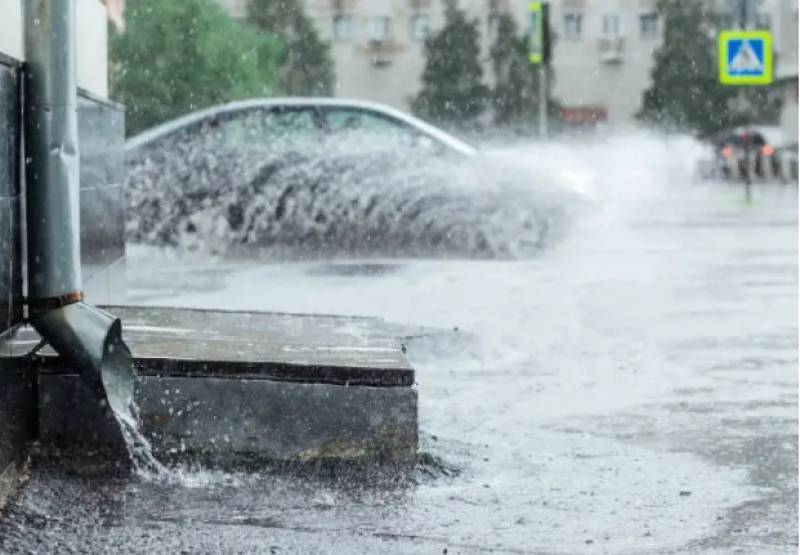 Friday September 1 marks the beginning of the climatological autumn and in honour of this change of season, an Isolated Depression at High Levels, more commonly known as a DANA, will sweep in across the Gulf of Cádiz and spread to the rest of the country over the weekend.
Friday September 1 marks the beginning of the climatological autumn and in honour of this change of season, an Isolated Depression at High Levels, more commonly known as a DANA, will sweep in across the Gulf of Cádiz and spread to the rest of the country over the weekend.This will result in torrential rain, hail storms and gale-force winds in practically the entire country, but the Mediterranean and northeast are most at risk.
Given these forecasts, many coastal municipalities in the Valencian Community, the Balearic Islands and Catalonia are already taking measures to minimise damage, including intensifying the cleaning of dry riverbeds and channels, as well as preparing the Local Police and fire departments to face the emergencies.
While many storms of this nature go unnoticed, this weekend’s squall will be especially violent since the arriving DANA comes with very low pressure values and very cold anomalies. When it passes over Spain it’s going to find an extremely warm Mediterranean, all the ingredients necessary to unleash a general storm of abundant and potentially torrential rainfall at some points.
Most worrying of all, meteorologists agree that the approaching DANA is going to be intense and on the Mediterranean coast they fear that the damage caused by the 2019 storm could be repeated, when a powerful cold drop flooded large areas of Alicante and Murcia and more than 4,000 people had to be evacuated.
With all this ahead of us, it seems crazy to think that several regions of Spain have already been put through the weather ringer this week.
At the tail-end of last weekend, a storm whipped up in the Balearic Islands and churned crushing waves and strong coastal winds off Palma de Mallorca, where the 330-metre-long P&O cruise ship Britannia, carrying thousands of UK tourists, was moored. Sometime after 11am, the gales ripped the liner from its berth and dragged the huge ship to the other end of the port, where it smashed into the Castillo de Arteaga oil tanker. The crash gouged a hole in the hull of the other vessel but thankfully no spillage has been reported.
One Welsh holidaymaker aboard the Britannia said the side of the ship was “battered.”
“We went out onto our balcony and could see debris in the ocean and all the damage to the side of the boat and our lifeboat. The captain said: ‘Everyone to their muster stations, this is not a drill.’ Lots of people were running around looking panicked,” she added.
Thankfully, only a few minor injuries were reported but on land, more than 300 weather-related incidents were reported on the Balearic Islands and over 100 flights were either cancelled or diverted on Sunday.
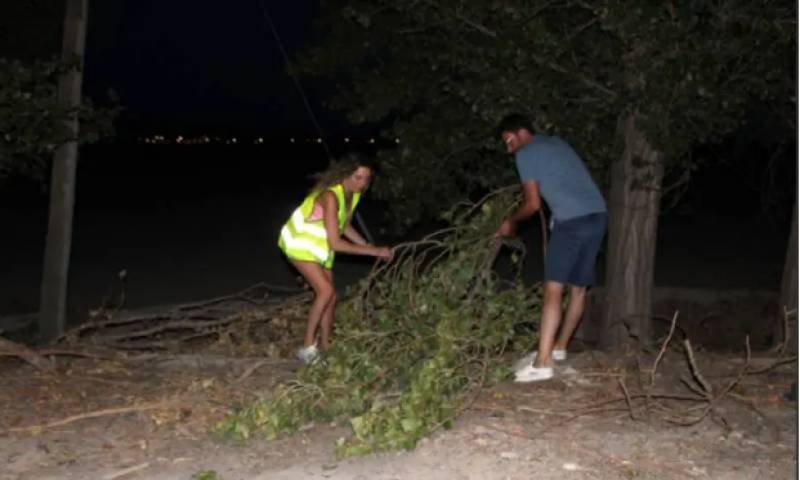 Meanwhile in the Murcian municipality of Lorca, no fewer than six minor tornados made landfall in the space of 24 hours, leaving a trail of destruction in Purias, Cazalla, Campillo and Almendricos.
Meanwhile in the Murcian municipality of Lorca, no fewer than six minor tornados made landfall in the space of 24 hours, leaving a trail of destruction in Purias, Cazalla, Campillo and Almendricos.The gale force winds downed huge tree branches throughout these towns, leaving residents without electricity or phone lines, and elsewhere, dozens of calls were received by the emergency services warning of trees blocking roads and of rubbish containers, advertising posters and construction apparatus being blown into the streets.
Travel and tourism
Those in the know were always confident that 2023 was going to be a record-breaking summer for tourism in Spain. It’s the first high-season since the onset of the coronavirus pandemic when things can truly be considered ‘back to normal’ and pretty horrible weather in the UK, Ireland and much of Europe has created an even higher demand.
But even the most optimistic of expectations have been exceeded, and hotel occupancy surpassed 93% on average with many hotspots reporting that their accommodation was fully booked out.
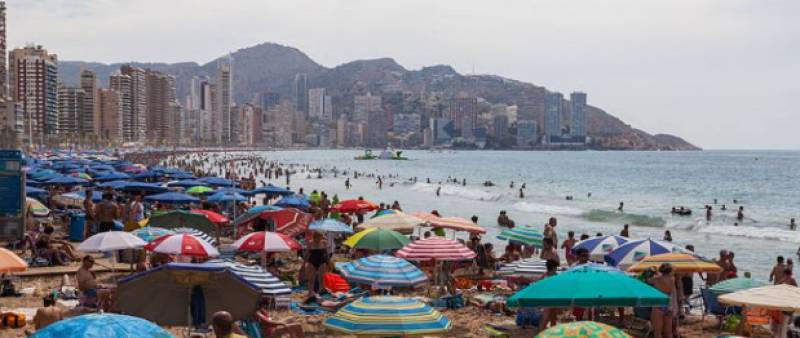 This is despite the fact the hotel rooms were 15% more expensive in July and August than in previous years, with some owners hiking up the price by between 20% and 30% for last-minute reservations, according to Booking.com.
This is despite the fact the hotel rooms were 15% more expensive in July and August than in previous years, with some owners hiking up the price by between 20% and 30% for last-minute reservations, according to Booking.com.Andalucia was the Spanish destination with the most bookings through the website, with Malaga and Seville as the stand-outs, followed by the Catalonia city of Salou. Next up is the Valencian Community, where Benidorm was the most popular choice by far and of course, the capital of Madrid.
But holidaymakers hoping for a quick end-of-summer get-away from the UK before the kids go back to school were in for a disappointment this week, and more than a couple of hours hanging around the airports.
In an unprecedented disaster, the air traffic control system in Britain crashed on Monday August 28, leading to countless delays and cancelled flights both in Spain and in the UK. The technical glitch meant that flight plans had to be uploaded manually, a tediously slow process Britain’s National Air Traffic Services (NATS) explained, so they had no choice other than to apply travel restrictions on flights over UK airspace.
All of the major airlines, including Ryanair, easyJet and Aerlingus warned their customers of massive delays and some passengers reported waiting in Alicante airport for more than ten hours.
“We are with easyJet and supposed to be going back to England at 23.40 tonight flight now says 10am tomorrow morning,” one person wrote from Alicante-Elche Airport.
“We are sat waiting at Leeds airport. No flights leaving since this morning. Boarding some planes but not taking off. Closed security due to airport being full. Doesn't look promising for a resolution anytime soon,” another added.
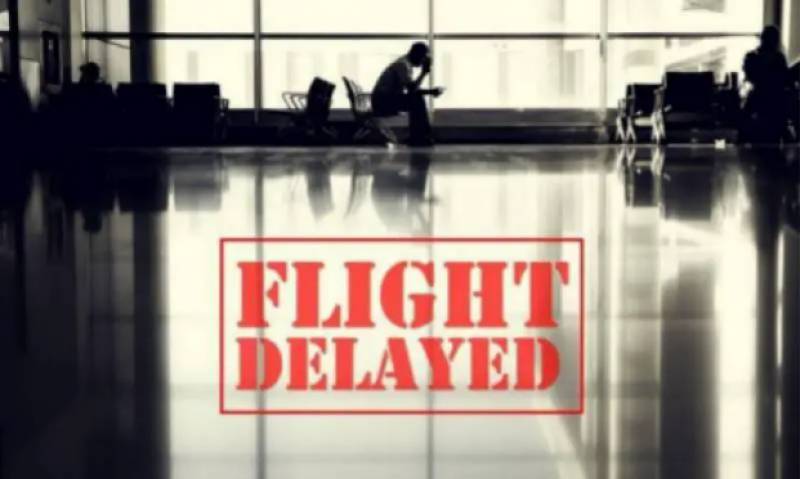 But while the technical issue was sorted out fairly quickly, the travel chaos spilled over into the following day, with Alicante Airport, where almost 40% of the air traffic either originates from or is destined for the British Isles, one of the worst affected.
But while the technical issue was sorted out fairly quickly, the travel chaos spilled over into the following day, with Alicante Airport, where almost 40% of the air traffic either originates from or is destined for the British Isles, one of the worst affected.The airport reported 10 delayed flights and at least two cancellations of the 116 scheduled operations with Britain on Tuesday August 29. Across Spain, some 147 flights that were due to depart from the United Kingdom were cancelled, which is equivalent to 5% of takeoffs, while a further 134 trips from Britain to Spain were axed, representing 5% of all arrivals.
Over the last 12 months or so, the Balearic Islands has been making headlines for the tough line it’s taking on so-called ‘drunken tourism’. The authorities have tried everything from limiting the amount of booze available at all-inclusive resorts to banning party boats, organised pub crawls and happy hours.
In another bid to cap the number of tourists flocking to the islands, a decision was made last year to limit the number of cruise ships allowed to dock in Palma de Mallorca to three per day, a move that was met with dismay by sea-faring visitors and holiday companies alike.
This looks set to change though, as the new administration said it’s open to welcoming more luxury tourist liners from 2025, but only in the low season.
Asked about delaying the increase in cruise liners for two more years, Minister of Tourism Jaume Bauzà explained that shipping companies already have their schedules locked in until the end of 2024. Since it’s been agreed that cruise tourism won’t be expanded during the high summer season, it stands to reason that the changes will be made from the autumn of 2025.
Cruise tourism contributes more than 500 million euros to the Balearic Islands annually and generates more than 4,000 jobs.
Climate crisis

Spain is waiting with bated breath for this weekend’s storm to descend, an event which meteorologists have described as “extraordinary” because this type of weather phenomenon shouldn’t really occur for another two or three months. It’s just another indication of the global climate crisis, which is not only bringing us earlier wintery gales but longer, hotter summers.
Andalucia has sweltered through four summer heatwaves this year, with the temperatures frequently hitting a dangerous 43 or 44ºC, placing provinces on red alert. Sadly, the deadly side of extreme heat has been exposed in the community and 154 people lost their lives because of the excessive temperatures between August 1 and 23.
According to the Daily Mortality Monitoring System (MoMo), that’s double the number of heat-related fatalities reported during the same period of 2022.
Most likely thanks to numerous national campaigns, the death toll in Spain has actually decreased this year compared to last (966 deaths as opposed to 1,607 in 2022) but Andalucia has the second-worst death rate due to extreme heat in the country, second only to Madrid, with 171 victims. Next up is Castilla-La Mancha (105), followed by Galicia (99), Castilla y Leon (89), Aragon (75) and Catalonia (69).
We can’t escape the fact that one of Spain’s biggest selling points is the weather, but if the scientists are correct and global warming leads to hotter and hotter summers in the coming years, what impact will that have on the country’s most important industry, tourism?
Well, the experts tend to agree that the Mediterranean in particular will be in the cross hairs of a change in travel trends that sees visitors move away from the baking south of Spain in search of more temperate weather, threatening a mainstay that drives the economy.
All of a sudden, in the Region of Murcia, which has broken a fair few temperature records itself this summer, the boast of ‘300 days of sunshine’ used as a tourist pull for decades is beginning to look more than a little ironic.
A report prepared by the European Commission’s Joint Research Centre has placed the Region of Murcia as the community in Spain most likely to lose out on tourism thanks to increasing temperatures, second only to the Balearic Islands. Specifically, researchers believe that Murcia’s overnight stays will drop by a significant 6.8% in the worst case scenario, which would see temperatures rise by four degrees by 2100.
In Spain, the EC has highlighted six other at-risk communities, aside from the Balearics and Murcia: the Valencian Community, Extremadura, Andalucia, Madrid, Castilla-La Mancha and Catalonia.
In total, 52 European regions in Bulgaria, Greece, Cyprus, France, Italy, Portugal, Romania and Spain are expected to lose tourist flows.
Murcia
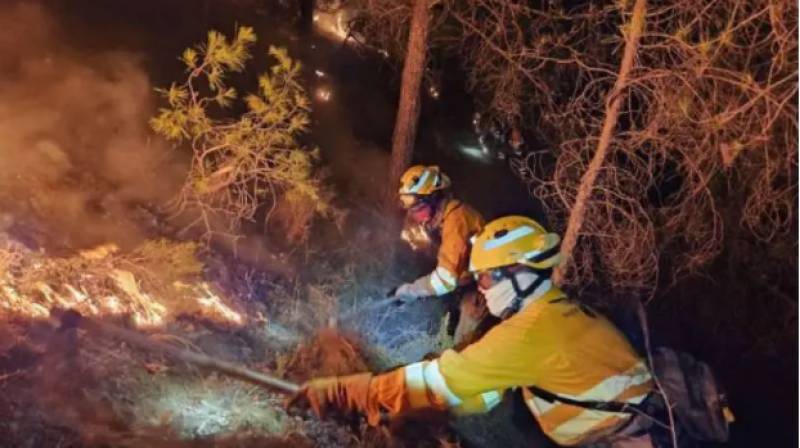
Scenes of devastation emerged from the Region of Murcia this week when a wildfire ripped through the El Valle and Carrascoy regional park just before midnight on Tuesday, burning up more than four hectares of land before firefighters managed to bring the blaze under control.
According to emergency services, the wildfire started in the vicinity of what is known as Senda de los Veteranos, a popular forest track for hikers who travel along this path every weekend on their way to the upper part of the regional park.
The epicentre of the fire was close to the El Valle youth hostel and the La Balsa restaurant, in the La Alberca district, where access to the mountain was thankfully well paved, allowing firefighters a clear path to tackle the flames and control the situation by early the following morning.
The winds picked up a little later in the week, whipping up dangerous currents and resulting in red and yellow flags being erected on many of Cartagena’s beaches. While the yellow beacons advise bathers to take extreme care in the water, when a red flag is flying, swimming is strictly prohibited as the sea is considered much too dangerous.
One such red flag was raised at Barco Perdido beach in La Manga but lifeguards were nevertheless forced to risk life and limb to rescue one careless swimmer who decided to ignore the warnings.
According to local sources, the bather went in the water despite repeated calls from lifeguards to return to shore and to make matters worse, entered the water with an inflatable, which put him at even more risk from the waves and wind.
Rescue workers eventually had to swim out and pull him back to safety. Following the foolhardy incident, officers from the Local Police and Civil Protection travelled to the beach to speak with the swimmer, who could be fined for failing to observe the warnings.
Staying with Cartagena and bar and restaurant owners are less than pleased this week with the council’s decision that outdoor terraces which were allowed to be extended during the coronavirus pandemic must now be removed. At the height of the health crisis, when indoor dining was restricted, establishments were permitted to put tables on the footpaths and in car park spaces to offer more seating to customers.
However, a message from Cartagena City Council last weekend clearly stated that venues who wish to keep the extra outdoor space could formally request to do so before Friday September 1, and could keep using their expanded terraces until a decision is made.
Despite this option, the Association of Hoteliers and Businessmen of the Hospitality of Cartagena and Region (Hostecar) has accused the council of taking away the terraces “at the worst moment.” A study commissioned by the organisation suggests that turnover fell by 12% during the summer months as people escape the heat of the city for the cooler coasts.
"Now that activity returns to the city, they take them away from us," they added.
Meanwhile, in Murcia city, the September Fair is in full swing, offering a huge variety of activities including open-air restaurants, two fairgrounds, the Moors and Christians celebrations, concerts and of course the veneration of the patron of the city, the Virgen de la Fuensanta.
 But one highly-controversial event, scheduled for September 16, is once again in the spotlight: the dwarf bullfighting show titled 'Popeye bullfighter and his sailor dwarfs.'
But one highly-controversial event, scheduled for September 16, is once again in the spotlight: the dwarf bullfighting show titled 'Popeye bullfighter and his sailor dwarfs.'Activist group The Franz Weber Foundation (FFW) has called on acting regional president Fernando López Miras to ban the show after previous pleas fell on deaf ears.
A little over a month ago, the activists lodged their concerns with the Region of Murcia’s Prosecutor’s Office and their protests were joined by other human rights groups.
However, the comedy act is still scheduled to form a central part of Murcia’s September Fair despite the fact that the Spanish Congress of Deputies, approved a law back in April prohibiting shows that mock or denigrate people with disabilities.
It’s worth keeping in mind though that every time a controversy arises over an event such as this one, the participants themselves vociferously defend the shows, denying that the bullfights belittle them and insisting that they feel respected in their work.
While several resorts in the Balearic Islands have issued an outright ban on party boats, these booze cruises are still very much allowed in the Region of Murcia, but this certainly doesn’t mean they’re popular with the locals.
Last week, the waters of Veneziola in La Manga were clogged with dozens of anchored boats filled with more than a hundred drinking and partying guests. Their presence was strongly protested by the La Manga Norte neighbourhood association and ANSE joined the call, highlighting the damage these parties are causing to an environment which is expressly protected by the Natura 2000 Network.
Officials have actually drafted new maritime navigation regulations that would prohibit boats in certain areas of the Mar Menor, but this document has been in the works for three years now without formal approval. And for now at least, according to the maritime boss of Cartagena, Óscar Villar, the revellers aren’t actually breaking any laws.
He said he understands why beachgoers are annoyed by their presence, but explained that anchoring boats near the coast is allowed once they’re not stopped in one place for longer than 24 hours.
"Citizens can see these clusters of ships as a pressure on the coasts, but they are not prohibited," he added.
On the other hand, the authorities in San Javier have filed 28 complaints over the summer against skippers who have anchored less than 200 metres from the shore.
Check out our EVENTS DIARY for more ideas of what to do in the Region of Murcia:
Spain
The big news, if not particularly good news, in Spain this week is that the provisional inflation figures for August are in, and they don’t make pleasant reading. Prises have risen for the second consecutive month and inflation has gone from 2.3% in July to 2.6%, thanks mainly to rising fuel costs.
However, while consumers are no doubt feeling the pinch this summer, it’s worth remembering that inflation still remains far lower than the crushing 10.5% it reached in August of 2022, the second-highest rate ever seen in Spain.
 In addition, inflation “remains well below the euro zone, after dropping by nearly eight points in the last year," highlighted the Ministry of Economic Affairs.
In addition, inflation “remains well below the euro zone, after dropping by nearly eight points in the last year," highlighted the Ministry of Economic Affairs.With four months left in the year, the European Commission estimates that 2023 could close out with an average inflation of 4%, compared to 8.5% in 2022.
Tourist tragedies in Spain sadly continue to rack up and earlier this week a 34-year-old Irish holidaymaker, who was reportedly on vacation with a group of friends, was found dead in his Ibiza hotel room.
Sources close to the investigation claim that police believe the young man’s death may be drug related but a post mortem will be carried out to determine the cause of the tragedy.
Just last month another tourist from the UK died in the same resort when he fell from a second-floor balcony. A large quantity of illegal drugs was found in his room after the accident.
It’s not all bad news though and there was cause to rejoice in Galicia when a Spanish pensioner became an unlikely hero for saving a young Irish tourist from drowning. 70-year-old Juan Blanco was enjoying a day at the Miño River in the heart of Ourense when he noticed the 20-year-old struggling in the currents.
Without hesitation, the hero pensioner plunged into the water and dragged the young man to safety. The Irish visitor appeared unharmed by the ordeal but was taken to hospital for a check-up.
Alicante
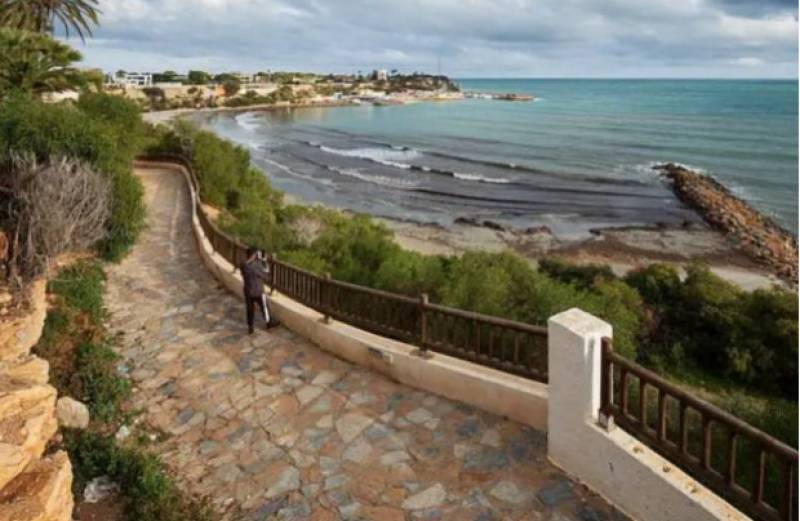
There’s great news for avid walkers as Orihuela City Council has decided to reopen a stretch of the Cabo Roig cliff path that has been blocked off to pedestrians since 2021, forcing them to take a 1 kilometre detour to reach the beach.
The 30-metre promenade, flanked by the coast on one side and residential properties on the other, connects Aguamarina with La Caleta in Cabo Roig.
It’s been closed to thoroughfare since 2021 when the courts sided with the owners of the Bellavista properties and ordered the council to block the path off at both ends.
The previous administration had tried and failed to reopen the popular cliff walk to the public, but the council confirmed on Friday September 1 that the Department of Infrastructure will formally approve the move at the next ordinary plenary session.
Thanks to its generous variety of pristine beaches, cosmopolitan cities and well-placed airport and train stations, Alicante province has become a real power house in the property market in recent years. And that trend has become even clearer in the second quarter of 2023, with Alicante ranked as the third most in-demand area in Spain for home buyers, surpassed only by Madrid and Barcelona.
Throughout the months of April, May and June, some 12,622 properties were bought and sold, with foreigners accounting for a staggering 44.67% of all purchases in Alicante. This places the province at the forefront of the foreign market at a national level.
In terms of foreign interest, Alicante is streets ahead compared to everywhere else in Spain. Santa Cruz de Tenerife comes in at a distant second, with non-nationals snapping up 38.01% of the properties for sale, followed by Malaga with 32.02%.
Interestingly, while British buyers mostly opt for second-hand homes, the Belgians, Dutch and Germans tend to go for new builds.
Check out the Costa Blanca What’s On and Where to Go Facebook group to see more things to do around Alicante province!
Andalucía

The search continues in Fuengirola for two Argentinian men who went missing during the week while paddle boarding off La Misericordia beach. The tourists, aged 29 and 34, took to the waters to watch the sunrise on a day when Aemet had issued a yellow weather warning for strong winds.
Their empty paddle board has since been recovered from the surf and two days after the disappearance, two bodies were recovered from the sea close to where the Argentinians were last seen, but officials confirmed the deceased are not the missing men.
Camila, the sister of one of the missing men, reported their disappearance to the National Police and explained that they were both novices at paddle boarding.
“They don’t know the deep sea,” she said, saying that they had previously been out in the water no more than four or five times.
Relations between Spain and the UK over Gibraltar became even more frosty this week when the Spanish lodged verbal complaints over three separate maritime incidents that occurred off the waters of the Rock this August.
In the politest way possible, the Government of Gibraltar essentially told Spain to keep its nose out, insisting that the waters near the Rock are under British sovereignty, not Spanish, while at the same time reassuring that this latest dispute will have no impact on the ongoing negotiations between the United Kingdom and the EU for a post-Brexit agreement.
Despite this back and forth, the Gibraltarian Government has taken the opportunity to ensure that it maintains its commitment to "achieving a satisfactory result for all parties" in the ongoing negotiation on the treaty that will regulate the relationship between the Rock and the EU now that the United Kingdom has left the bloc.
"The recent series of incidents should not have any effect on those positive negotiations that are awaiting the result of the inauguration of a new Government in Spain," the statement concluded.
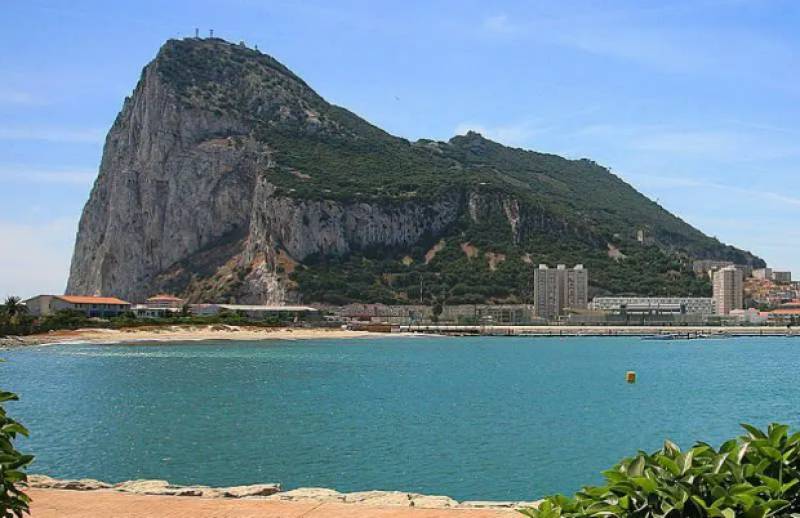
You may have missed…
- Petrol and diesel reach highest prices of the year in Spain.
Today in Spain, filling an average 55-litre tank with petrol will cost eight euros more than in May, when both fuels reached rock-bottom prices. - Pilot whale population being monitored off the coast of Mazarron.
Just a few miles from the beaches of Mazarrón the sailing vessel Else, manned by members of the ANSE naturalist group, has spent much of the summer tracking pods of pilot whales along the coastline. - Brit rental car driver smashes into Fuerteventura bar terrace, injuring eight.
Eight people have been injured, including a four-month-old infant, when a hire car allegedly being driven by a holidaymaker from the UK ploughed into a bar terrace in the popular resort of Fuerteventura. - New archaeological dig begins on the Isla del Fraile in Aguilas.
The fourth consecutive annual archaeological dig is currently beginning on the islet of Isla del Fraile, just a few metres offshore to the east of the town centre of Águilas. - Mother of suspended FA president goes on hunger strike inside Spanish church.
Ángeles Béjar, mother of Luis Rubiales, barricaded herself into the Divina Pastora de Motril church in Granada and declared that she would remain on hunger strike until her disgraced son is reinstated.
That’s all for this week. Thanks for reading and be sure to keep safe out there this weekend.
See you next week!
Contact Murcia Today: Editorial 000 000 000 /
Office 000 000 000


























